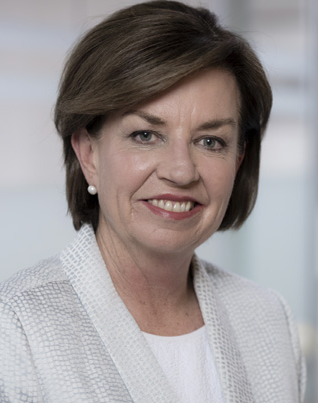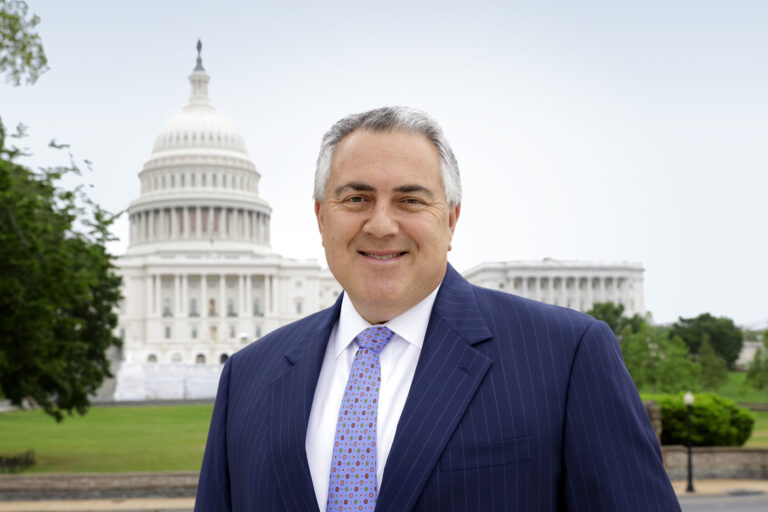Anna Bligh

First female Premier of Queensland
Anna Bligh was elected to the Parliament of Queensland in 1995, becoming the first female Premier of the state in September 2007 and Australia’s first popularly elected Premier when she won the 2009 election in her own right. She held this position until March 2012.
Prior to becoming Premier, Anna Bligh held ministerial responsibilities for a number of portfolios including Education, Social Welfare, Arts, Economic and State Development, Finance, Treasury and Deputy Premier.
Her leadership came to national and international attention as she led the response and recovery effort to devastating natural disasters – a series of catastrophic floods across 78% of Queensland, including the capital, Brisbane, followed by a category 5 cyclone – that crippled the state in January 2011.
Following these disasters, Anna Bligh led a major reconstruction program which included a legislated Reconstruction Authority administering a $6bn rebuilding budget. The recovery and reconstruction framework and program attracted international interest, notably from the World Bank.
During her time in Cabinet and as leader of the State, Ms Bligh brought a progressive and reforming energy to her role and oversaw a number of major reforms.
More about Anna Bligh:
In 2005 Anna Bligh became Queensland’s first female Minister for Education and drove the biggest reforms in Queensland’s education system in more than a half a century.
These include bringing Queensland schooling into line with other Australian States for the first time by introducing an additional year of school; increasing kindergarten programs from 28% of 3-4year olds to 94% of that age group; requiring all young people aged 15 to 17 to be enrolled in school or in full time work, effectively lifting the school leaving age from 15 to 17; and initiating and overseeing the largest school renewal and rebuilding program in 25 years.
As Treasurer and Premier, Ms Bligh held responsibility for a State budget of almost $50bn, delivering services to Australia’s most decentralised fastest growing State. Under her leadership, the Queensland economy underwent a period of significant modernisation and structural reform.
Economic reform highlights include overseeing Australia’s largest infrastructure building program (averaging $15bn a year,) for 6 years; a major reform of utilities; major new investments into research, science and innovation which saw the establishment of 36 new science research institutes and the ratio of scientists and researchers to population grow faster than any other State to exceed the OECD average; and privatisation of the bulk freight and coal division of the government-owned railway business in 2010 – this was Australia’s 2nd largest public float and one of its most successful.
Social initiatives were also a priority. Early in her career, Anna Bligh worked in a number of NGO Social Services, primarily involving women and children, and implemented a range of social reforms and programs during her leadership.
These included a tripling of budget expenditure to services for people with a disability; Australia’s first Royal Commission of Inquiry into Historical Abuse in Orphanages and Institutions, resulting in a compensation scheme, a dedicated counselling service and beneficial foundation for victims; major welfare reforms in remote indigenous communities, formally recognising Aboriginal and Torres Strait Islanders, Queensland’s indigenous peoples as first custodians; new legal protections for those experiencing domestic violence, including in same sex relationships, and carer and elder abuse; and new laws to provide for same sex civil unions.
Anna Bligh’s environmental reforms include the regulation of agricultural run-off on the World Heritage-listed Great Barrier Reef, the expansion of the National Park estate by 25%, Australia’s first ‘Wild Rivers’ legislation which protects pristine river systems from development and the implementation of a Solar Energy assistance program that increased the number of households using solar power from 1000 to more than 200,000 in 3 years.
Prior to entering Parliament, Anna Bligh was a senior public servant in both central agency and service delivery agencies. Her leadership saw a range of important reforms including a sweeping overhaul of Freedom of Information laws which have become a blueprint for national reforms; Australia’s first comprehensive accountability framework for political lobbyists; new programs to increase the public sector employment of Indigenous Australians; and a significant restructure of the public sector which reduced 23 separate agencies to 13 integrated, cross-sectoral agencies.
Anna Bligh graduated with an Arts degree in Social Sciences from the University of Queensland in 1980. She was awarded an Honorary Doctorate from this University in 2010 in recognition of her contribution to education in Queensland.



